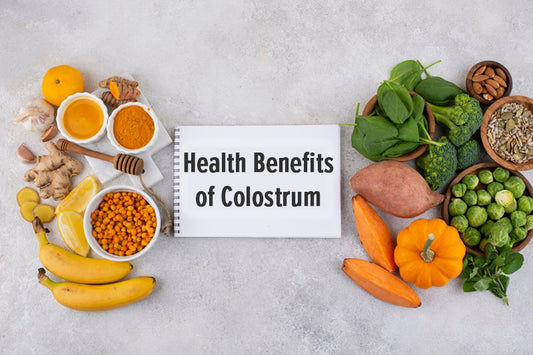What are the events and transformations that occur during the process of fermentation?
During the fermentation process, something magical happens to our food. Microorganisms like bacteria and yeast work their scientific wonders to transform food ingredients. Let's dive into this fascinating process and discover how it unfolds.
Fermentation is a natural process where microorganisms break down sugars in food and convert them. One of the most common types of fermentation is lactic acid fermentation. In this process, good bacteria called lactic acid bacteria consume sugars and produce lactic acid as a byproduct. This acid is the reason behind the tangy taste of fermented foods.
Another type of common fermentation is alcohol fermentation. Yeast, a tiny organism, is responsible for this process. Yeast consumes sugars and converts them into alcohol and carbon dioxide. That's why you might notice bubbles in certain fermented beverages like beer or wine.
What's incredible is that these microbes are all around us, and they play a crucial role in the transformation of food. For example, when making yogurt (fermented dairy product), specific strains of bacteria are added to milk. When bacteria eat the sugar in milk, it gets thicker and develops a tangy taste. This is how yogurt gets its delicious flavor and health benefits.
The fermentation process not only changes the taste and texture of the food but also helps food preservation. As the microorganisms consume sugars, they create byproducts that help preserve the food and increase its lifespan. This means you can store and eat fermented foods for longer periods.
Examples of Fermented Foods
Here are some fermented foods that you can find in most grocery stores:
- Yogurt: A popular fermented dairy food that contains live bacteria cultures. Look for plain, unsweetened yogurt for maximum health benefits.
- Dark Tea: A well-known fermented tea. During manufacturing, the tea leaves undergo a microbial fermentation process, which leads to the characteristic dark color and rich flavor.
- Apple cider vinegar: A type of vinegar made from the fermentation process. Through this natural process, apple cider transforms into a tangy vinegar with various culinary uses and potential health benefits.
- Sourdough bread: A fermented food made through the fermentation of dough using naturally occurring wild yeast and lactic acid bacteria.
- Sauerkraut: Fermented cabbage that is commonly used as a topping or side dish. It possesses a pleasantly tangy taste and contains beneficial probiotics.
- Kimchi: A traditional Korean side dish made from fermented vegetables, usually cabbage and radishes, which have a spicy and sour taste.
- Miso: A paste made from fermented soybeans, often used in Japanese cuisine. It adds a savory and umami flavor to soups, marinades, and dressings.
- Kefir: This is a beverage made by fermenting milk that has a tangy flavor. It is packed with probiotics and is available in both dairy and non-dairy options.
- Pickles: Fermented cucumbers or other vegetables that are preserved in a brine solution. Look for naturally fermented pickles without added vinegar for the most health benefits.
- Tempeh: A fermented soybean product with a firm texture. It is commonly used as a meat substitute in various dishes and is a good source of plant-based protein.
Benefits of Fermented Foods
Fermented foods come in diverse forms and these foods are not only delicious but also offer potential health benefits.
One of the main advantages of fermented foods, they contain beneficial bacteria that play a crucial role in promoting gut health. When you consume fermented foods, you introduce these good bacteria into your digestive system. They keep your gut microbiome healthy, help with digestion, and lower the chance of stomach problems like irritable bowel syndrome.
Research has also shown that fermented foods can have a positive impact on your immune system. For example, EpiCor®, a clinically proven whole food fermentate that supports antibody production and helps modulate the body’s natural immune response year-round.
Furthermore, studies suggest that consuming fermented foods might have a positive effect on chronic diseases. High blood pressure, for instance, is a common health concern. Some research indicates that including fermented foods in your diet could help manage healthy blood pressure levels.
Additionally, fermented foods have been associated with improved cholesterol levels. High levels of "bad" cholesterol (Low-density lipid) in the blood can contribute to the development of heart disease. Studies suggest that certain fermented foods can help manage bad and good cholesterol (High-density lipid) levels. This positive shift in cholesterol balance can have a protective effect on your heart.
How to Incorporate Fermented Foods into Your Diet
Adding fermented foods to your meals is an easy and enjoyable method to improve their taste along with gaining nutritional advantages. Let's explore some creative and delicious ways to include these foods in your daily eating routine.
A simple approach to begin is by using sauerkraut or kimchi as toppings. These fermented vegetables add a tangy and crunchy element to your sandwiches and salads. Just a spoonful of sauerkraut or kimchi can transform an ordinary meal into a flavor-packed delight.
Another option is to incorporate yogurt, kefir, or fermented milk into your daily routine. These can be consumed as a snack, or added to smoothies making it creamy and healthy. Experiment with different fruit combinations to create delicious and healthy yogurt or kefir-based smoothies.
If you're looking for plant-based alternatives, tempeh, and miso are excellent choices.
Tempeh, made from fermented soybeans, can be used as a protein alternative in stir-fries or added to salads. It possesses a solid consistency and a pleasant nutty taste. Miso, a paste made from fermented soybeans, adds a savory and umami taste to soups, marinades, and dressings. You can even use it as a seasoning for roasted vegetables to elevate their flavor.
The key is to experiment with these ingredients and let your creativity shine. Do not hesitate to experiment with new recipes and discover various taste combinations. By including fermented foods, you not only add a delicious taste to your meals but also boost their nutritional value.
Additionally, there are many fermentation-based dietary or food supplements that are easy to incorporate into your health routine. For example, l-glutamine, EpiCor®, apple cider vinegar, and more.
Conclusion: The Power of Fermented Foods
Fermented foods offer a world of flavors and health benefits that are worth exploring. Tiny living things like bacteria and yeast make yogurt and pickles taste tangy and unique. Consuming these foods can support your gut, heart, immune health, and overall wellness. Start your flavorful journey today and reap the rewards of including fermented foods in your diet.






